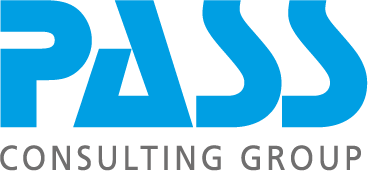Success Story: KfW

Legacy System Modernization: 100 % automated migration from PL/I to Java
The KfW Bankengruppe is Germany's third largest bank. An essential factor for their success is a high performing IT system and professional IT solutions that optimally support their business processes. With their IT Strategy 2020, KfW have set the course for an extensive modernization of their IT landscape.
One element includes the replacement of the PL/I based system with a Java based system. Due to cost and time-to-market aspects a new development or a manual migration would not have been feasible. KfW therefore decided for an automated migration of a part of the PL/I application to the IT Strategy 2020 web framework.
With this objective, KfW opened up competitive bidding for the identification and implementation of suitable methodology for the automated migration from PL/I to Java. The PASS Consulting Group won the bidding, as amongst other reasons they have over 10 years experience and have successfully implemented numerous migration projects. Another deciding factor was that the PASS Migration Factory conforms to the ISO 9126 quality standards.
The specification criteria included a minimum 95 % automated migration to a sustainable Java code that could be further developed and also considered load factors, performance and maintainability. In addition the minimization of the frozen zone became a mandatory requirement to enable ongoing necessary adjustments to the application to comply with statutory regulations and technical requirements during the project period.
"Through this pilot project, the KfW has gained assurance and a new degree of freedom regarding the IT STRATEGY 2020. We now know that a 100 % automated migration using the PASS Migration Factory is viable. The results of the migration are sustainable and will be very useful for further development. In addition, the demands we set for code quality and performance were completely fulfilled."
Volker Scheringer
Director, IT MIG – IT Strategy 2020 Migration at the KfW Bank Group
PASS could exceed these requirements: The degree of automation was 100 % and not the 95 % demanded. The frozen zone was limited to a migration run time instead of several days. Within 18 weeks, the subsystem was migrated to Java on budget, on time on quality, technically tested and integrated into KfW's runtime environment.
KfW's conclusion
The KfW was impressed by PASS Migration Factory's performance. The migrated sources passed regression testing. Showed by a result comparison of the PL/I implementation with the Java implementation. The automatically generated Java code successfully passed throughthe QS Tools Check-Style, PMD and Findbugs. The code was generated as a standard Javacode, particularly in respect to the naming convention (CamelCase) and the retrieval and editing methods (getter and setter). The migration included integration in the runtime environment (particularly batch framework, MQand DB access). As the code is legible to a Java developer, the maintenance can be performed with the standard Java constructs (object orientation,standard libraries etc.) in the Eclipse development environment (RAD).
With the PASS Migration Factory an economic, error-free porting of procedural programming language in an object-orientated programming language is attained. PASS could prove once again that an existing implementation represents a complete model for a Model Driven Development Approach and that there are many good reasons for this approach.
Many strategic and efficiency-orientated objectives can be achieved using this technology:
- Reduction of heterogeneity costs (convergence)
- Reduction of hardware costs (offloading)
- Reduction of license costs (replatforming)
- Reduction of solution handling charges (reuse)
- Flexibilization of services
